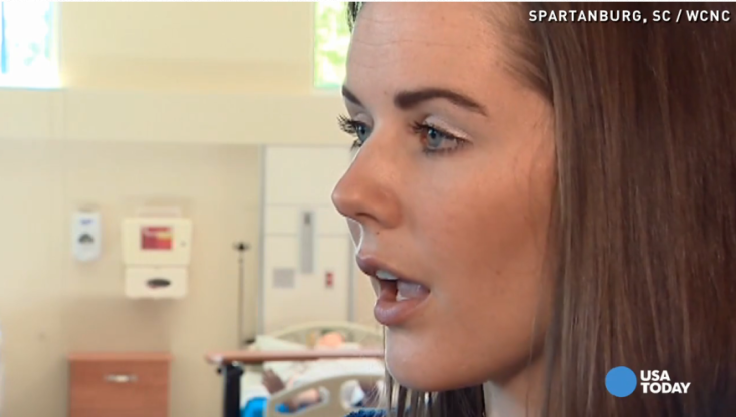Fighting Brain Cancer With Polio: Doctors Treat College Student’s Tumor With Poliovirus

Polio, despite being a deadly virus that we are attempting to wipe out for good, is also helping doctors fight cancer — at least in a genetically-modified form.
One 23-year-old nursing student from Spartanburg, S.C., became the first patient to receive a successful poliovirus treatment for her brain tumor. Diagnosed with stage four glioblastoma at age 20, Stephanie Lipscomb was told by medical professionals that she would not live long. “The odds weren’t good,” Lipscomb told USA Today. “They didn’t expect me to live more than two years, I don’t think.” Despite undergoing surgery, chemotherapy, and radiation therapy, the tumor kept coming back.
In May 2012, doctors at Duke University Medical Center gave Lipscomb the chance to be a part of an experimental treatment that harnessed the use of the poliovirus in targeting the cancer. During a lengthy surgery, doctors injected a genetically-modified version of the poliovirus (PVS-RIPO) into the tumor — and it hasn’t returned since. Now, Lipscomb is able to celebrate her 23rd birthday cancer-free.
Polio is a life-threatening disease that slowly kills its victims through paralysis, leaving them to die once their lungs stop working, if they’re not treated properly. Young children who aren’t vaccinated — particularly in rural, remote areas of the globe — are the most vulnerable to the virus. Thanks to the polio vaccine, however, the disease has been wiped out almost everywhere in the world, except for three countries where it remains endemic — Nigeria, Afghanistan, and Pakistan — as well as Syria, where recently it broke out again in areas where the civil war ravaged the countryside.
Doctors at the Preston Robert Tisch Brain Tumor Center at Duke University Medical Center hope to carry through more of these poliovirus-cancer surgeries. So far, they’ve completed several and followed up with two patients who are now living a normal cancer-free life.
Viruses engineered to kill cancer cells are known as “oncolytic viruses,” and they must be able to target the cancer and destroy it, while remaining safe at the same time. “Accomplishing this is very difficult scientifically and only very few viruses are suitable as cancer-fighting agents in the clinic,” Duke University’s PVS-RIPO website notes. “We achieved this feat by genetic engineering to remove poliovirus’ inherent disease-causing ability … PVS-RIPO naturally infects almost all cancer cells, because the receptor for poliovirus (which is used for cell entry) is abnormally present on most tumor cells.”



























